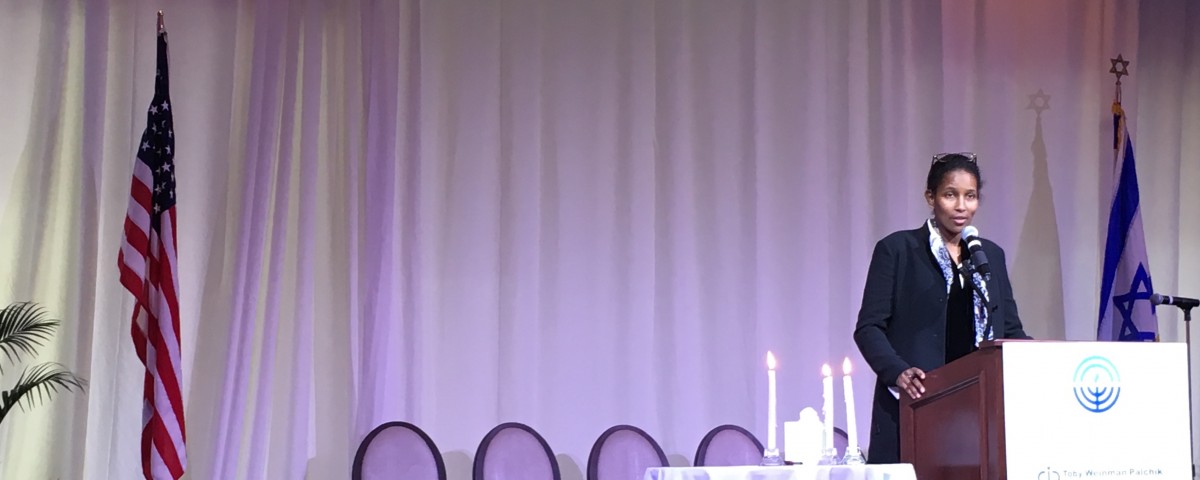Ayaan’s Bravery Inspires a Room Full of Lions

Once forced to contain her voice, Ayaan now speaks to girls suffering around the world: “You Can be Free!”
This month, AHA Foundation Founder Ayaan Hirsi Ali was honored by the Jewish Federation of South Palm Beach County with an invitation to speak at their annual Lion of Judah Luncheon. The luncheon presented the perfect opportunity for Ayaan to share her message of empowerment and the fight for women’s rights with a group of extraordinary women who are passionate about promoting rights and freedoms.
Event Co-Chair Robin Rubin introduced Ayaan as a “true champion for women’s rights, advocating for women around the globe.” Susan Levine, Director of Philanthropy for the Jewish Federation of South Palm Beach County, said that what was most remarkable to her was Ayaan’s “quiet dignity and kindness,” continuing that Ayaan “took [her] breath away with her generosity of spirit.”
During her remarks, Ayaan took the audience back through her personal journey growing up in Somalia in a self-described “culture of honor and shame.” She shared memories of her grandmother using a piece of sheep fat rotting in the sun, covered in flies and ants, to illustrate the value of a girl who brought shame on her family. For it was always the women and girls who had the weight of the family’s honor resting on their shoulders, bound by the cultural code to not behave in a way that the family and community deemed “shameful”; the men of the family were the enforcers of this code. Becoming this metaphorical piece of sheep fat, Ayaan recounted, would not only destroy the girl but the entire family.
It was under this same culture of honor and shame that compelled Ayaan’s grandmother to force Ayaan to undergo female genital mutilation (FGM) as a five-year-old girl. Cutting a girl was considered “purification” within a culture where no man would dare marry a girl who was “unpurified.”
Ayaan recalled for the audience that her father had been more progressive than most, allowing both his daughters to continue their educations rather than pulling them from school and marrying them off as young girls, which was the fate of many of her classmates. It was because of that education that Ayaan was able to read tales of adventure that spurred her imagination, such as the Nancy Drew series and the Hardy Boys. These books also gave her a window into a world outside her own, so that when her father eventually did force her to marry a distant cousin, Ayaan’s mind was filled with the glittering possibilities of a life outside an unwanted marriage, free from the litter of children and lack of self-determination that was sure to follow.
Ayaan told of how, with those possibilities in mind, she fled from Germany, where she had been instructed to await the visa that would take her to her new husband’s home in Canada, to seek political asylum in Holland instead. Once there, after working a series of menial jobs to support herself and learn Dutch, she worked as a translator while attending the University of Leiden.
Ayaan would often translate for the Somali women at the domestic violence shelter and spoke of how, though she was bound by professional ethics to only offer direct translations for the clients of the shelter, it pained her to not tell the women who were facing honor violence and forced marriage, “Go! Do what I did! Run! You can be free!”
Ayaan recounted with the Lions of Judah how taking the train to Holland, choosing the life she wished to live, has led her today to her work with the AHA Foundation. Ayaan beamed as she told the room that this work allows her to do what she longed to do many years before, saying, “Now, we are able to tell the women who come to us in fear, ‘Go! You can be free! You can do what I did! You are not alone!’”

